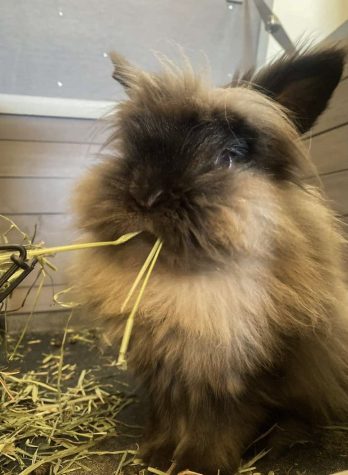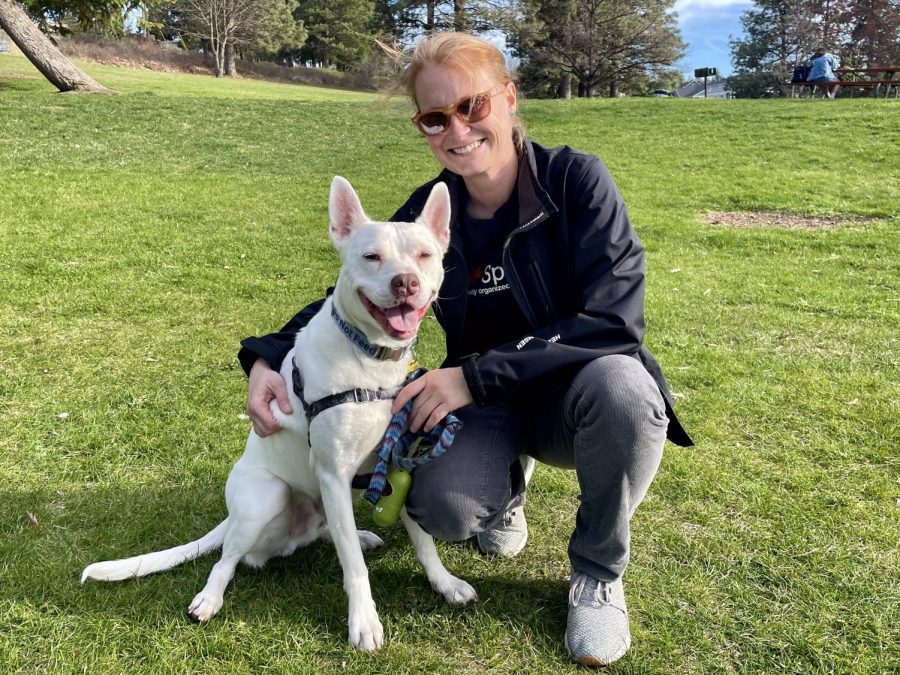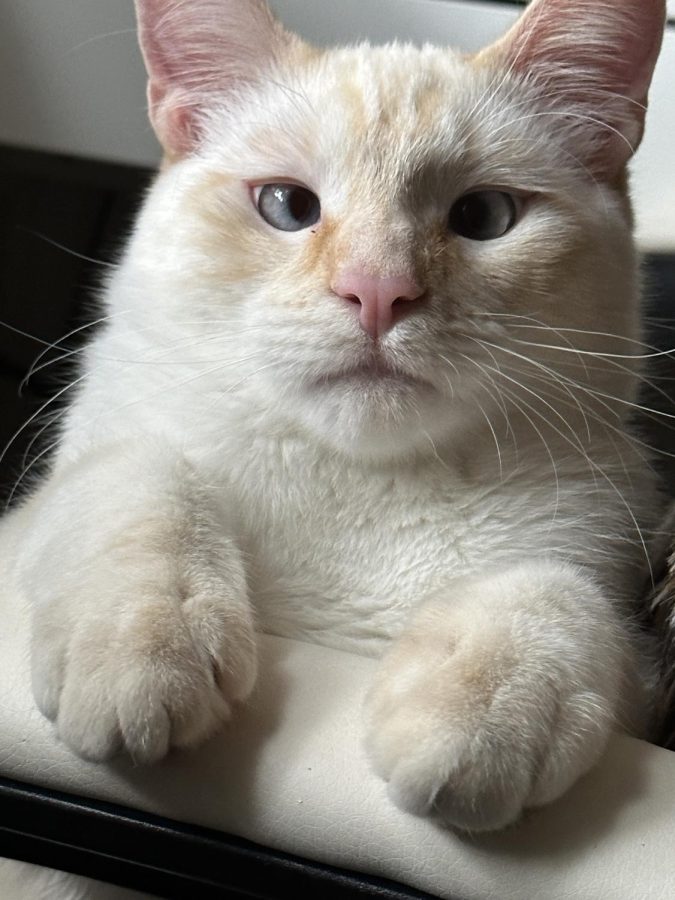Study shows Washington is most likely to spoil pets
599 out of every 100,000 Google searches made in Washington were related to gifts for pets
Tracy Simmons has a dog, four chickens, and two chicks.
May 2, 2023
Washington pet owners are the seventh most likely to spoil their pets out of all the U.S. states, according to a study from Printed Memories.
The study found that 599 out of every 100,000 Google searches made in Washington were related to gifts for pets.
Becca Orth, senior Fine Arts major, said her Lionhead rabbit comforted her through the pandemic.
“When I first got him it was a time of isolation, so he means a lot to me because he gave me comfort during a tough time,” she said.

In the two years Orth has had her rabbit, she has made him homemade treats and buys him new toys once a month.
“He gets really crazy when I have treats and sometimes accidentally nips me because he thinks my hand is the treat,” she said.
Orth said he is a playful rabbit who chases her roommate’s cat around, hops into the air, and runs around on the carpet.
In February he had a health scare and Orth rushed him to the vet. He was lethargic, but Orth said right after his treatment he began hopping around and playing again.
“He is a resilient little guy and he brings a lot of joy and comfort to my life,” she said.
Tracy Simmons, a scholarly assistant professor at the WSU Murrow College, has a dog, four chickens, and two chicks.
She got her seven-year-old dog, Finn, six years ago. Simmons said Finn is a snuggly and playful dog who loves to play frisbee. Finn is also a well-educated dog as he has completed a lot of training courses.
“He is a step away from being a therapy dog,” Simmons said. “He’s been through obedience classes so right now he is a Canine Good Citizen.”
Simmons adopted Finn from Rescue4All, a Spokane shelter that specializes in megaesophagus, a condition that Finn has.
Megaesophagus makes it difficult for dogs with the condition to fully swallow their food, so they often throw up after eating.
Before Simmons rescued Finn, he was in a shelter in Kentucky and was going to be put down because he kept throwing up his food, Simmons said. However, they discovered Finn had megaesophagus and an individual flew him to Rescue4All due to their specialization in rehabilitating dogs with his condition.
“A lot of people wouldn’t adopt him because he was 27 pounds when they rescued him,” Simmons said. “Now he’s about 50. He’s a lot of work but he’s totally, definitely worth it.”
If Simmons is still working late in the day, Finn starts barking at her to lay down with him, she said. She puts a blanket on her couch for Finn to snuggle with her because he often barks at her to snuggle.
Hannah Arneson, sophomore public relations major, said her Border Collie Russell loves treats and pup-cups from coffee shops.
“Every time I’m sitting at the table I know I shouldn’t, but his eyes just kill me every time, so I’m just like, Here you go,’” Arneson said.

Arneson said owning a dog in college is a big responsibility that people should deeply consider before adopting one.
“I will say that having a dog in college is hard,” she said. “I wouldn’t necessarily recommend it for people who are busy and like to go out. It’s definitely like having a child.”
Despite the struggles and responsibilities, she said owning her pet has gotten her through the tough times.
“I don’t think I would have gotten through the semester without him,” she said. “Shoutout to my man Russell.”










